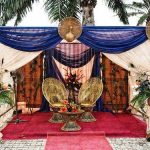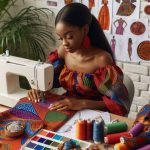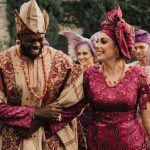
Stepping into university life in Nigeria is more than just attending lectures and writing exams—it’s the beginning of adulthood, independence, and expressing yourself in every way, including how you dress. Unlike secondary school where uniforms dictated your daily outfits, the university gives you the freedom to build your personal style. But the question is: what exactly should be in your wardrobe?
Whether you’re a fresher resuming for the first time or a returning student looking to refresh your closet, there are key wardrobe essentials you shouldn’t joke with. Trust me, you don’t want to waste money buying clothes you won’t even wear.
In this post, I’ll break down all the must-have wardrobe essentials every Nigerian university student—whether male or female—should have. These items will have you covered for lectures, outings, hostel hangouts, Owambe, and even those unplanned presentations. Let’s dive right in.
1. Comfortable Jeans (At Least 2-3 Pairs)
Jeans are the backbone of any student’s wardrobe. They are versatile, durable, and perfect for the Nigerian campus lifestyle. Whether it’s a hot day or a rainy one, a good pair of jeans always works.
Get at least two or three pairs—one blue, one black, and maybe one in a lighter shade. For guys, slim or straight cuts are ideal. For ladies, you can go for mom jeans, skinny jeans, or wide-leg styles depending on your vibe.
Remember, avoid overly distressed jeans or jeans with wild designs, especially if your school has strict dress codes.
2. Basic T-Shirts (Plain and Graphic)
Plain t-shirts (white, black, grey, navy blue) are lifesavers. They can be paired with anything—from jeans to skirts—and you’ll still look clean and presentable.
Also, don’t forget to add some cool graphic tees. They’re perfect for casual hangouts or when you want to show off a bit of your personality. Just avoid offensive prints; we’re still in Nigeria, remember?
3. Button-Up Shirts (Formal and Casual)
Whether you’re male or female, shirts are non-negotiable. Get at least two formal button-up shirts—preferably white and light blue—for presentations, interviews, or special occasions.
Also, invest in a few casual shirts (think checkered, striped, or denim shirts) that you can wear open over a t-shirt or buttoned up.
4. Polo Shirts
Polo shirts strike a balance between casual and semi-formal. They’re especially popular among male students but ladies can rock them too. Pair them with jeans or chinos for that smart-casual look. Stick to solid colors like maroon, navy, or grey.
5. Chinos and Neutral Trousers
Sometimes, jeans won’t cut it, especially during presentations, church service, or when you want to switch things up. Chinos (khaki, beige, black, navy) give you that polished appearance without looking overdressed.
Ladies can also get neutral-colored palazzo trousers or tailored pants—they’re comfy and classy.
6. Simple Dresses and Gowns (For Ladies)
For female students, a couple of simple dresses should be in your wardrobe. Go for easy, everyday dresses that are breathable and can handle the Nigerian heat.
Also, include at least one black dress—trust me, you’ll need it for dinners, dates, or formal events.
7. Hoodies and Sweatshirts
Nigerian campuses get surprisingly chilly during the rainy season or harmattan. Having two or three hoodies and sweatshirts is essential.
They’re perfect for when you’re heading to an early morning lecture or just lounging around your hostel. Plus, you can layer them stylishly over t-shirts or dresses.
8. Jackets and Blazers
For formal occasions, a well-fitted blazer will serve you well. Both guys and ladies should invest in one or two classic blazers—black or navy blue is always a safe bet.
Casual jackets (like denim or bomber jackets) are also great additions for campus vibes and evening strolls.
9. Footwear Essentials
Your shoe game matters, no cap! Here are the basics you need:
- White Sneakers: They match almost any outfit and give that clean, fresh vibe.
- Slides/Slippers: For hostel movement or running errands around campus.
- Formal Shoes: One pair for official events, presentations, or church (ladies—black pumps or low heels; guys—black or brown leather shoes).
- Casual Sandals: Something breathable and comfy for those hot days.
Bonus: Ladies, a pair of simple, strappy heels won’t hurt for Owambe and parties.
10. Basic Accessories
Accessories can elevate your outfit effortlessly. Keep it simple and functional:
- Wristwatch: Still very relevant. A classic watch shows responsibility.
- Belts: Black and brown belts (especially for guys) are a must.
- Minimal Jewelry: Simple earrings, chains, or studs. Ladies, keep it classy.
- Sunglasses: For sunny days and that cool campus vibe.
- Caps or Hats: Bucket hats, baseball caps—you can never go wrong here.
11. Traditional Attire (Native Wears)
You can’t be a full Nigerian student and not have at least one or two native wears in your wardrobe. Ankara, senator wears, kaftans—whatever your tribe, embrace it.
They come in handy during cultural days, weddings, or church programs. Plus, it’s a way to represent your roots proudly.
12. Undergarments & Essentials
This one is basic but often overlooked. Make sure you stock up on enough:
- Quality boxers/panties
- Singlets (for guys) and camisoles (for ladies)
- Bralettes and good bras for ladies
- Socks (white and black at least)
You’ll be surprised how stressful it is trying to wash frequently in the middle of tests and projects. So, have enough to last you comfortably.
13. Durable Backpack or Tote Bag
Lectures, library, off-campus errands—you need a sturdy, stylish backpack or tote bag. Don’t go for something too flashy; functionality and durability are key. Some students even opt for crossbody bags or messenger bags for a chic look.
14. Sleepwear and Loungewear
Hostel life means you’ll be stepping out to fetch water, gist with hostel mates, or grab food at odd hours. Have decent sleepwear—no torn wrappers or old jerseys, abeg.
Simple shorts and t-shirts or two-piece loungewear sets will do.
15. Rainy Season Essentials
Let’s not forget, Nigerian universities face heavy rains. Add these to your wardrobe:
- Umbrella (portable size)
- Lightweight raincoat or jacket
- Water-resistant footwear (rubber sandals, crocs, or boots)
16. Multipurpose Scarves and Shawls
For ladies, scarves can double up as head coverings, fashion accessories, or even quick fixes for bad hair days. Guys, you can grab neck gaiters or mufflers especially during harmattan.
Bonus Tips: How to Shop Smart on a Student Budget
We all know pocket money is not unlimited. So how do you afford all these wardrobe essentials without going broke?
- Thrift/Okirika Shopping: Nigerian campuses are blessed with cheap but quality thrift markets. From jeans to shirts and shoes—you’ll find solid deals.
- Buy Gradually: You don’t need to buy everything at once. Start with basics and add more over the semesters.
- Swap with Friends: Don’t be shy to trade clothes or accessories with friends occasionally.
- Look Out for Sales: Major stores in Nigeria often have student discounts or clearance sales. Be alert!
Conclusion
Your wardrobe as a Nigerian university student should reflect balance—comfort, style, and practicality. Stick to versatile, neutral colors, add a few bold pieces, and make sure you’re always prepared for whatever campus life throws your way.
So, before resuming school, take stock of what you have and invest wisely. Dressing well doesn’t have to be expensive, but it can boost your confidence, help you feel good, and even leave a lasting impression wherever you go.
Now over to you: Which of these wardrobe essentials do you already have? And which ones are next on your shopping list?
Feel free to drop a comment below, let’s gist!







Leave a Reply